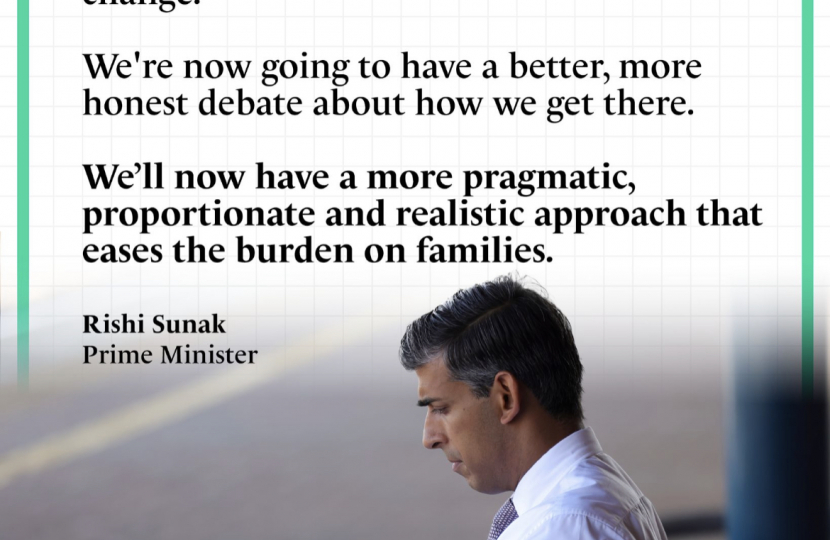
As a former Environment Secretary, I am fully supportive of the Net Zero agenda and the need for a credible plan to get there. The effects of climate change through floods and wildfires are becoming more apparent as the years pass and it is also essential for our national security that we reduce our dependence on oil and gas in the decades ahead.
However, if we want to actually deliver Net Zero by 2050, we need to identify the correct path towards it. On one side of this polarised debate are those who say we must lock into particular solutions right now based only on what we know today, whatever the cost might be. In fact, if we want to achieve Net Zero, it is essential that we adopt a pathway that provides the space and time for technologies to develop and improve. Despite the criticism he is receiving from some quarters, the Prime Minister is ultimately right to review the path we are on. The decisions he has taken today make it more likely that we will achieve Net Zero by 2050, rather than less likely.
A good example relates to replacement boilers for homes that are off the gas grid. Six years ago, it looked like heat pumps would be the only low-carbon option. However, the technology around renewable liquid fuels has developed considerably in recent years and supply is also rising dramatically. For just a couple of hundred pounds, we can adapt existing kerosene boilers to run on renewable fuels and reduce carbon emissions by almost 90 per cent. Because that is an easy step for people to take, they are much more likely to take it early meaning we cut carbon emissions far faster than trying to force people to adopt expensive new heating systems.
On agriculture, there has been a noisy lobby group arguing that we should tax meat and dairy products or run some government advertising campaign to try to reduce consumption. Even the Climate Change Committee have parroted these campaigns, but it is a completely incoherent argument. Firstly, every country in the world measures Greenhouse Gases based on emissions, not consumption. Our agriculture is globally competitive so even if the UK market contracted, our emissions would remain unchanged, and we would simply export more. Secondly, British livestock producers are the most sustainable in the world and have roughly half the emissions per head of overseas producers. If we did destroy our own livestock industry and imported meat instead, we would not have done a clever day’s work. Finally, the science around livestock and methane has developed considerably in recent years. We now know that pasture-based livestock systems for cattle and sheep provide huge potential for carbon sequestration and the recovery of nature.
The right approach is to redouble our efforts on research and innovation which is what the PM has pledged to do. The UK has some of the best science institutions in the world. For instance, if we could develop cattle feed additives that inhibited the release of methane, we could share our technology with the rest of the world, and it would be a game changer. We can do the same in virtually every area. The UK is not the largest country in the world, but we have always been the most inventive, can show leadership through technology and must do the same now to help the whole world meet Net Zero.

